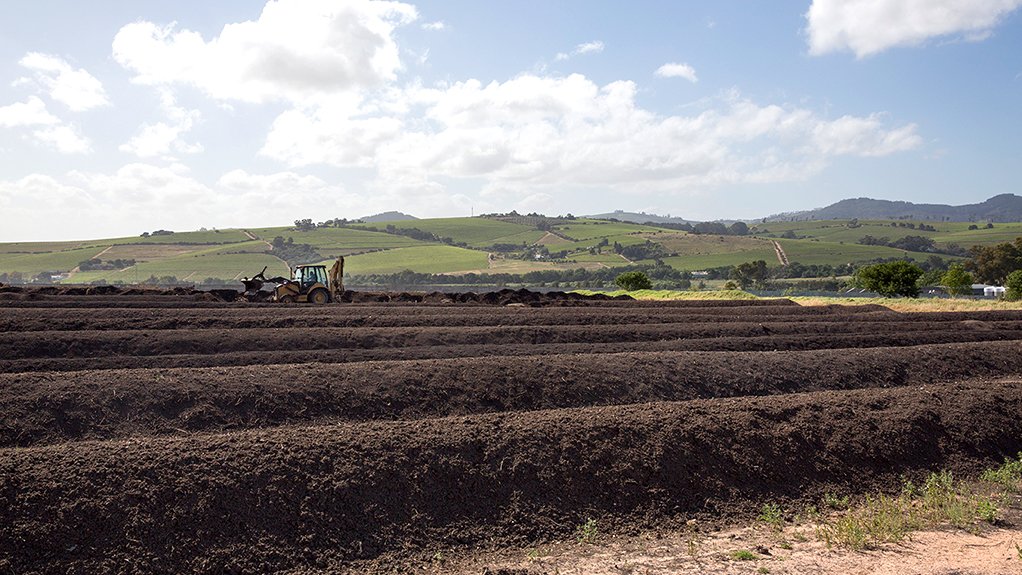Winemaker Spier sets the tone for lower-carbon production
Wine production, from growing to packaging and selling, has a heavy carbon footprint despite having “green” vineyards and, therefore, the winemaking industry has turned its attention to reducing carbon emissions, particularly through carbon sequestration.
It is also increasingly important to consider water scarcity, as it becomes more prominent in heatwave-stricken regions owing to climate change.
The fruit and wine sector’s Confronting Climate Change (CCC) initiative has, since 2008, been supporting producers to identify and respond to risks and opportunities associated with carbon emissions.
The initiative finds that electricity used for the pumping of water to vineyards is the largest source of farm-level carbon emissions, owing to South Africa’s grid-supplied electricity being predominantly coal-based.
In the winemaking process specifically, the use of synthetic nitrogen-based fertilisers is also a big source of carbon emissions, while glass production makes up the majority of total packaging-related emissions.
CCC project manager Anél Blignaut says carbon “hotspots” for wineries include their use of virgin packaging materials, such as glass and corrugated cardboard boxes, which form large portions of the supply-chain carbon emissions. This is, therefore, a priority area that winemakers can focus on to reduce carbon emissions.
The CCC encourages South Africa wine farmers to measure and monitor their carbon emissions, which Spier Wine Farms, for one, has been committed to for more than a decade.
Spier has a four-pronged approach to reach net-zero emissions, comprising energy, waste, biodiversity and water initiatives. The company continuously analyses the carbon footprint of its entire supply chain, alongside suppliers and consumers.
For example, Spier has conducted research and development into bottle and packaging-related alternatives, including lighter weight bottles, eliminating palette wrap and using water-soluble glue instead of Sellotape. These practices tie into the “waste” portion of Spier’s holistic approach to carbon reduction.
In February, Spier reported that its recycling and recovery efforts have resulted in 6 782 kg less carbon dioxide emissions, while its use of solar panels to generate electricity has reduced carbon emissions by 107 808 kg in 2021.
Spier also uses regenerative farming practices to remove carbon from the atmosphere. The company explains that soil with a higher carbon content is able to hold more water, which, in turn, makes irrigation more efficient.
The company’s practice of high-density grazing on Spier’s pastures also leads to carbon being sequestered more than 17 times faster than normal pasture grazing.
“These kind of ambitious and collaborative efforts will see South African wineries reduce their carbon emissions and ultimately reach the net-zero target,” Blignaut says.
Article Enquiry
Email Article
Save Article
Feedback
To advertise email advertising@creamermedia.co.za or click here
Press Office
Announcements
What's On
Subscribe to improve your user experience...
Option 1 (equivalent of R125 a month):
Receive a weekly copy of Creamer Media's Engineering News & Mining Weekly magazine
(print copy for those in South Africa and e-magazine for those outside of South Africa)
Receive daily email newsletters
Access to full search results
Access archive of magazine back copies
Access to Projects in Progress
Access to ONE Research Report of your choice in PDF format
Option 2 (equivalent of R375 a month):
All benefits from Option 1
PLUS
Access to Creamer Media's Research Channel Africa for ALL Research Reports, in PDF format, on various industrial and mining sectors
including Electricity; Water; Energy Transition; Hydrogen; Roads, Rail and Ports; Coal; Gold; Platinum; Battery Metals; etc.
Already a subscriber?
Forgotten your password?
Receive weekly copy of Creamer Media's Engineering News & Mining Weekly magazine (print copy for those in South Africa and e-magazine for those outside of South Africa)
➕
Recieve daily email newsletters
➕
Access to full search results
➕
Access archive of magazine back copies
➕
Access to Projects in Progress
➕
Access to ONE Research Report of your choice in PDF format
RESEARCH CHANNEL AFRICA
R4500 (equivalent of R375 a month)
SUBSCRIBEAll benefits from Option 1
➕
Access to Creamer Media's Research Channel Africa for ALL Research Reports on various industrial and mining sectors, in PDF format, including on:
Electricity
➕
Water
➕
Energy Transition
➕
Hydrogen
➕
Roads, Rail and Ports
➕
Coal
➕
Gold
➕
Platinum
➕
Battery Metals
➕
etc.
Receive all benefits from Option 1 or Option 2 delivered to numerous people at your company
➕
Multiple User names and Passwords for simultaneous log-ins
➕
Intranet integration access to all in your organisation





















